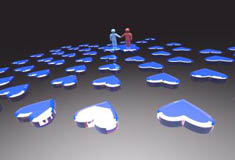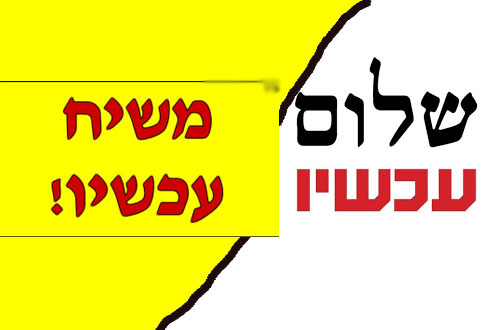When Good Feels Bitter: Seeing Beyond the Pain
הרב שי טחןא שבט, תשפה30/01/2025Rather, the essence of bitachon is to place one's confidence in Hashem with the understanding that everything decreed from Heaven is ultimately for the good
תגיות:אמונהבטחוןמשה רבנו
Revisiting the concepts of emunah and bitachon that we discussed over the past couple of weeks in relation to the famous new song, we gain a deeper understanding of these ideas from the beginning of our parasha through Moshe’s conversation with Hashem.
In last week’s parasha, Hashem instructs Moshe Rabbeinu to begin the process of freeing the nation from the slavery of Mitzrayim. While one might expect that taking steps toward their release would improve their dire situation, the reality was quite the opposite. Things became significantly worse, as Pharaoh increased the demands on the Hebrew slaves, requiring them to produce more work under even harsher conditions.
significantly worse, as Pharaoh increased the demands on the Hebrew slaves, requiring them to produce more work under even harsher conditions.
Moshe Rabbeinu, witnessing the unbearable suffering that resulted directly from his actions—actions guided by Hashem to speak to Pharaoh for their release—approach Hashem and voice his complaint: Why has the situation worsened instead of improving?
Hashem’s response to Moshe had to wait until the beginning of our parasha, and it conveys a profound lesson that can guide every person through life’s challenges. Hashem rebukes Moshe Rabbeinu sharply for claiming that He worsened the situation of the Jewish people. He then reveals His future plan: to free them from slavery and bring them to the Land of Israel.
Additionally, Hashem contrasts Moshe’s reaction with that of the patriarchs, highlighting their greatness in never questioning Him, even though He had not shown them tangible rewards for their actions, whereas Moshe expressed doubts. This comparison underscores the patriarchs' unwavering faith and trust in Hashem’s ultimate plan, even when it was not immediately apparent.
Even after understanding the above, we are still left questioning how Hashem’s response addresses Moshe Rabbeinu’s complaint. Moshe asked why, after Hashem sent him to work toward the nation’s release, their situation worsened instead of improving. Wasn’t Hashem supposed to follow through on His promise and make their conditions better?
The answer to this is deeply profound. While we may perceive something as bad and see conditions worsening, Hashem has the true perspective, and what appears negative can actually be good. Good and bad are not defined by our limited perception but by the reality as it truly is—and the ultimate reality is known only to Hashem.
This is why Hashem rebukes Moshe, who should have understood that Hashem does not do anything bad, but only good—even when circumstances are hard and bitter. As a rabbi once said, when things become difficult, we should not say they are bad but rather that they are bitter. This means that while it may be hard for us to tolerate them, in reality, they are ultimately good for us.
This also highlights the concept of bitachon as explained in the sfarim: Hashem does only good for us, but we should not expect that things will align with our desires. Instead, the good that Hashem provides is the true and ultimate good as He sees it, which may not always match our limited understanding.
The Pele Yoets writes (Havtacha): “The concept of bitachon is not about relying on Hashem to fulfill all one's needs exactly as one desires or to ensure that no harm befalls them. If this were the basis of bitachon, one’s expectations would sometimes be disappointed; as we see many righteous individuals endure great suffering, severe hardships, hunger, and other misfortunes and troubles that arise in the world.
Rather, the essence of bitachon is to place one's confidence in Hashem with the understanding that everything decreed from Heaven is ultimately for the good. Before Hashem, it is clear what is truly beneficial, and He acts accordingly. Humans, by contrast, judge based on appearances and often mistake evil for good and good for evil. Hashem alone knows what is genuinely good for a person’s service of Him and for the rectification of their soul, spirit, and essence.
Therefore, one should accept whatever happens with contentment and joy, trusting that nothing bad comes from Heaven—only good. With this mindset, a person casts their burden upon Hashem, directs their soul toward Him, and refrains from futile efforts to force their own will to prevail.”
In last week’s parasha, Hashem instructs Moshe Rabbeinu to begin the process of freeing the nation from the slavery of Mitzrayim. While one might expect that taking steps toward their release would improve their dire situation, the reality was quite the opposite. Things became

Moshe Rabbeinu, witnessing the unbearable suffering that resulted directly from his actions—actions guided by Hashem to speak to Pharaoh for their release—approach Hashem and voice his complaint: Why has the situation worsened instead of improving?
Hashem’s response to Moshe had to wait until the beginning of our parasha, and it conveys a profound lesson that can guide every person through life’s challenges. Hashem rebukes Moshe Rabbeinu sharply for claiming that He worsened the situation of the Jewish people. He then reveals His future plan: to free them from slavery and bring them to the Land of Israel.
Additionally, Hashem contrasts Moshe’s reaction with that of the patriarchs, highlighting their greatness in never questioning Him, even though He had not shown them tangible rewards for their actions, whereas Moshe expressed doubts. This comparison underscores the patriarchs' unwavering faith and trust in Hashem’s ultimate plan, even when it was not immediately apparent.
Even after understanding the above, we are still left questioning how Hashem’s response addresses Moshe Rabbeinu’s complaint. Moshe asked why, after Hashem sent him to work toward the nation’s release, their situation worsened instead of improving. Wasn’t Hashem supposed to follow through on His promise and make their conditions better?
The answer to this is deeply profound. While we may perceive something as bad and see conditions worsening, Hashem has the true perspective, and what appears negative can actually be good. Good and bad are not defined by our limited perception but by the reality as it truly is—and the ultimate reality is known only to Hashem.
This is why Hashem rebukes Moshe, who should have understood that Hashem does not do anything bad, but only good—even when circumstances are hard and bitter. As a rabbi once said, when things become difficult, we should not say they are bad but rather that they are bitter. This means that while it may be hard for us to tolerate them, in reality, they are ultimately good for us.
This also highlights the concept of bitachon as explained in the sfarim: Hashem does only good for us, but we should not expect that things will align with our desires. Instead, the good that Hashem provides is the true and ultimate good as He sees it, which may not always match our limited understanding.
The Pele Yoets writes (Havtacha): “The concept of bitachon is not about relying on Hashem to fulfill all one's needs exactly as one desires or to ensure that no harm befalls them. If this were the basis of bitachon, one’s expectations would sometimes be disappointed; as we see many righteous individuals endure great suffering, severe hardships, hunger, and other misfortunes and troubles that arise in the world.
Rather, the essence of bitachon is to place one's confidence in Hashem with the understanding that everything decreed from Heaven is ultimately for the good. Before Hashem, it is clear what is truly beneficial, and He acts accordingly. Humans, by contrast, judge based on appearances and often mistake evil for good and good for evil. Hashem alone knows what is genuinely good for a person’s service of Him and for the rectification of their soul, spirit, and essence.
Therefore, one should accept whatever happens with contentment and joy, trusting that nothing bad comes from Heaven—only good. With this mindset, a person casts their burden upon Hashem, directs their soul toward Him, and refrains from futile efforts to force their own will to prevail.”
הוסף תגובה
עוד מהרב שי טחן
עוד בנושא אמונה








